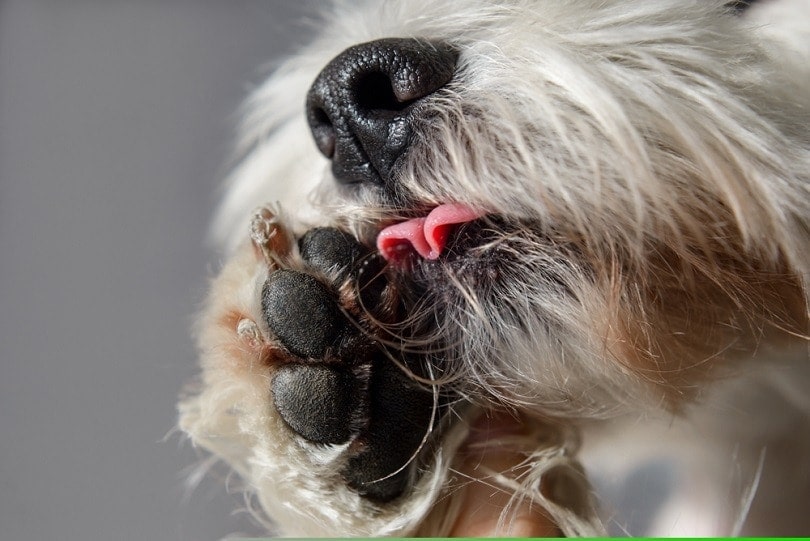6 Good Sources of Calcium for Dogs – Easy & Tasty Ideas

Updated on
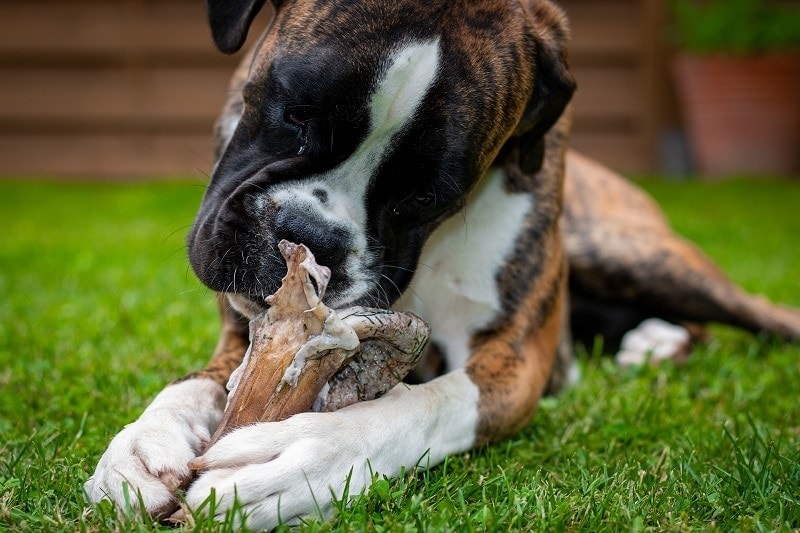
Feeding your dog a complete and proper diet is essential to their overall health and development. This is especially true for puppies, which need many of their vital nutrients in increased amounts.
If you are feeding your dog a homemade diet, you will need to ensure that they are getting all the necessary calcium in their diets. It is an essential nutrient to support their growth and development. Sometimes, it can be a challenge to track what vitamins and nutrients they receive unless you target certain foods. If you’re wondering what you can give your dog for calcium, you’re in the right place. Here are six good sources of calcium for dogs:
The Importance of Calcium for Dogs
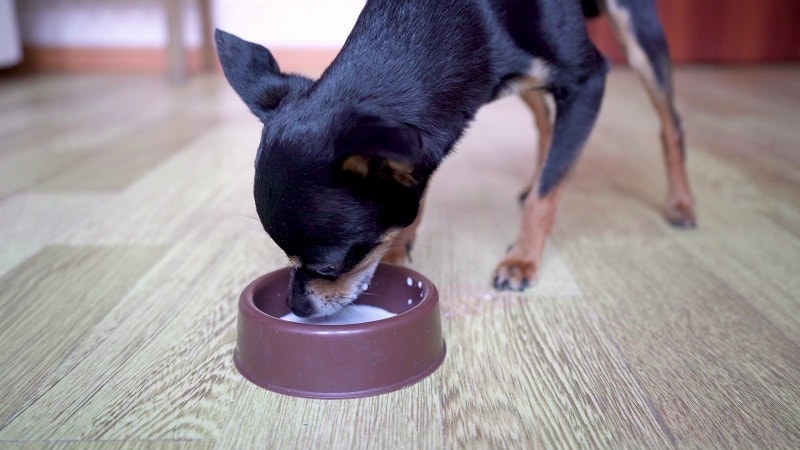
Getting the proper amount of calcium in your pup’s diet is essential for quite a few reasons. One is that calcium is one of the most influential nutrients needed for developing and maintaining your pup’s entire skeleton. The health of their teeth and the function of their heart and hormones are also regulated by the amount of calcium in their systems.
The challenging aspect of providing them with excess calcium is that there can be too much of a good thing. Calcium deficiency is more risky and dangerous than too much calcium, but finding a balance is the best practice.
If you are not feeding them a homemade diet, it is doubtful that you need to supplement their diets. Some dogs might not process it as well as they should, but wait for your vet to recommend calcium supplements. Puppies need more calcium than adult dogs, but it is even more dangerous to supplement their diets since typical puppy food has already increased calcium levels.
How Much Calcium Do Dogs Need?
Not every dog is the same in their nutritional needs. However, calculating their nutrient needs according to their weight is typically the most accurate way to go. Adult dogs will need about 120 milligrams of calcium per kilogram of weight.
If you have a puppy, they need more than double this amount. Feed them about 320 milligrams of calcium for each kilogram of body weight. If your adult pup is pregnant, ask your vet how much they will need, since calcium is quickly lost during pregnancy and nursing.
If you or your vet determine that your pup needs more calcium, then it is best to give it to them naturally than to feed them supplements. Keep reading to see our list of seven natural sources of calcium that you can easily add to their diet to increase their calcium levels.
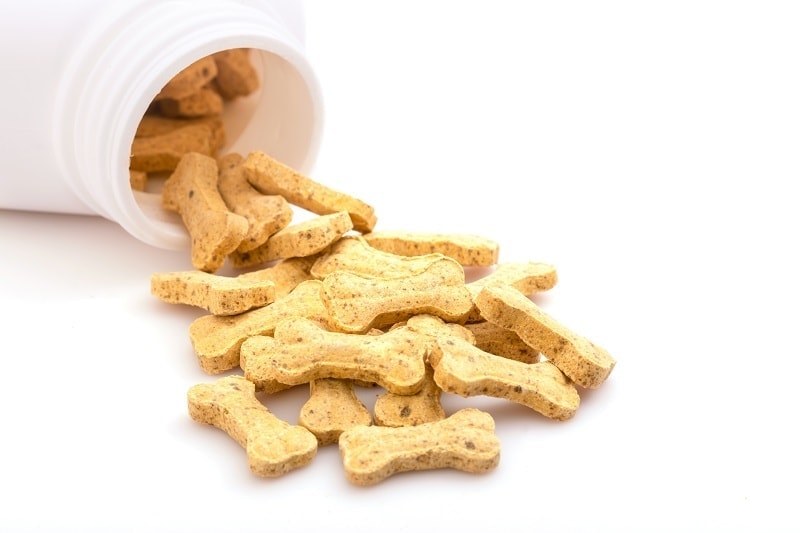
Symptoms of Calcium Deficiency
Knowing what to look for in a dog that could be experiencing calcium deficiency can help you protect them in the future. Symptoms of calcium deficiency include:
- Muscle tremors and twitching
- Intermittent muscle spasms
- Changes in their behavior
- Loss of appetite
- Loss of control over their bodily movements
- Listlessness
- Weakness
If you notice these symptoms, especially if more than one is becoming apparent, it is best to check with your vet and test for calcium deficiency.
The 6 Best Sources of Calcium for Your Dog
We are told from a young age that calcium is essential for us to grow big and strong. The same is true for your dog. Instead of buying them supplements and forcing them to take a daily pill, try to incorporate these natural sources into their diet.
1. Broccoli
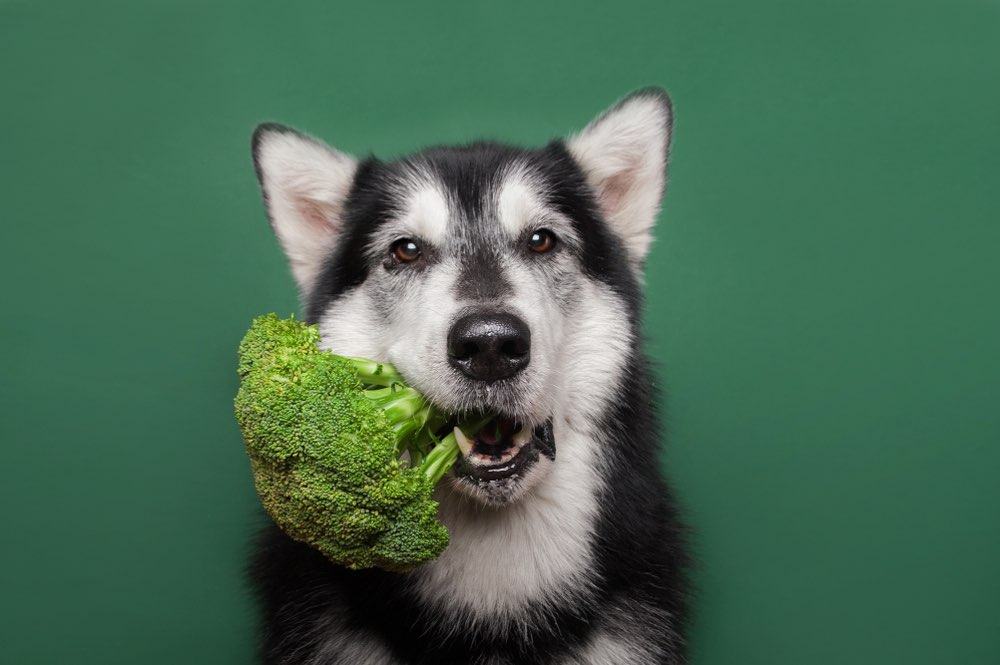
Most people think that dogs are predominantly carnivores. However, they need plenty of fruit and vegetables to maintain a healthy diet, as they are omnivores. Broccoli is a valuable vegetable for the growth of your pup.
Feed them raw broccoli without any oil and herbs. You can also serve them veggies like sweet potatoes and beans to get in extra milligrams of calcium.
2. Bones

Bones are a rich source of calcium for your dogs, but you need to carefully monitor what kind of bones they eat.
Bones are a handy source of calcium because you will not have any problems getting your dog excited about this calcium-rich snack. You can find bones that are safe for consumption at most pet stores. They satisfy their need for something to chew on and can even help keep their teeth healthy.
Do not ever feed your dog bones from birds, including chicken or turkey. They might beg for it, but these bones can easily break into fragments and cause your dog to choke or hurt their mouths. Do not serve them any kind of cooked bone either. The heat will have caused it to break down, which can mean splinters, an ever-present danger as your dog chews the bones.
3. Dark Leafy Greens
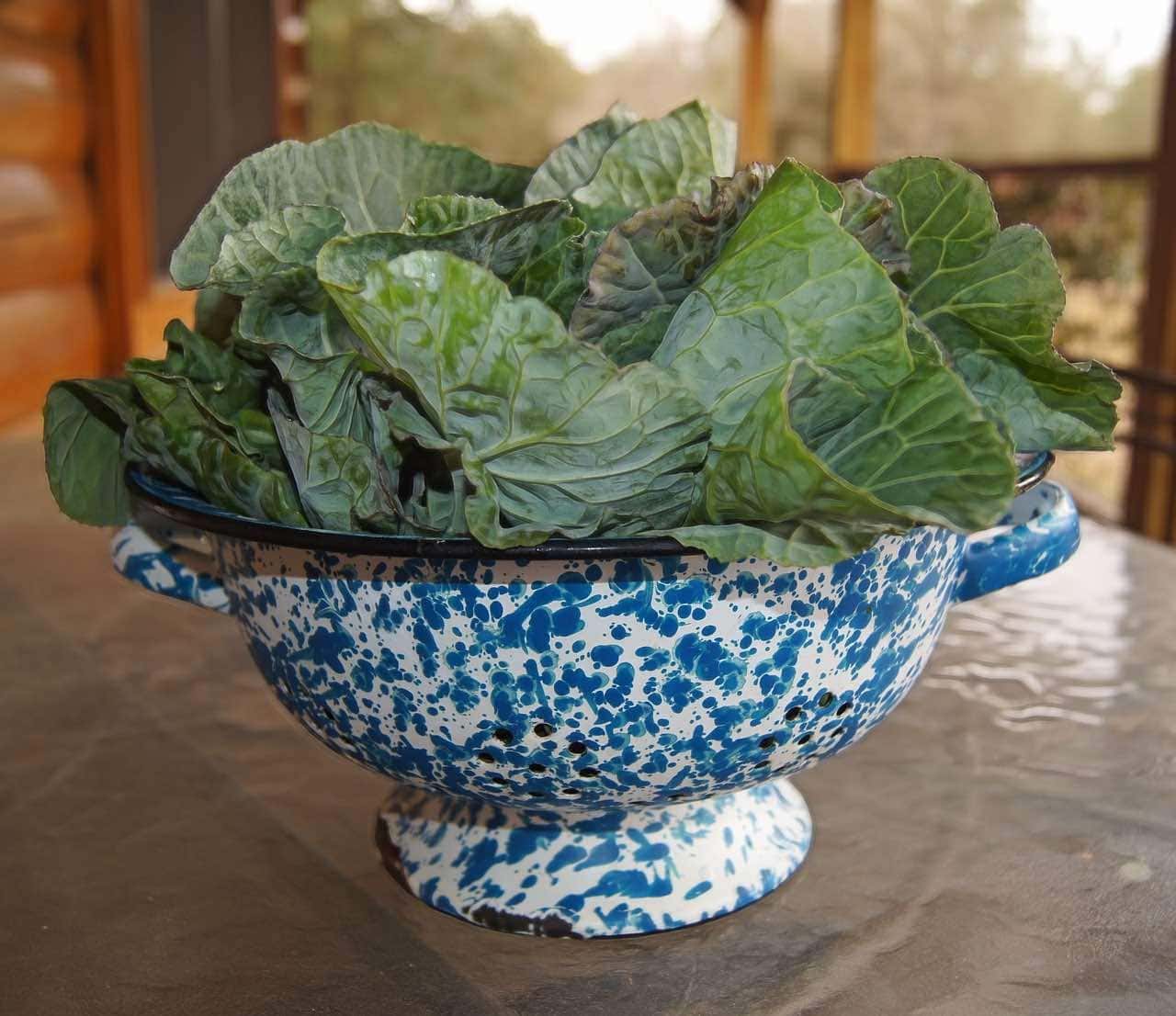
Beyond chunky foods like broccoli, any kind of dark leafy green is beneficial for your pup’s diet. Who would have thought that giving your dog a salad could be helpful? If you whip them up a meal, then try and incorporate leafy greens like kale and spinach.
Light-leaved lettuce does not do much to help your dog, however. Even for humans, these leaves pack a tiny nutritional punch and are mostly water.
4. Fish
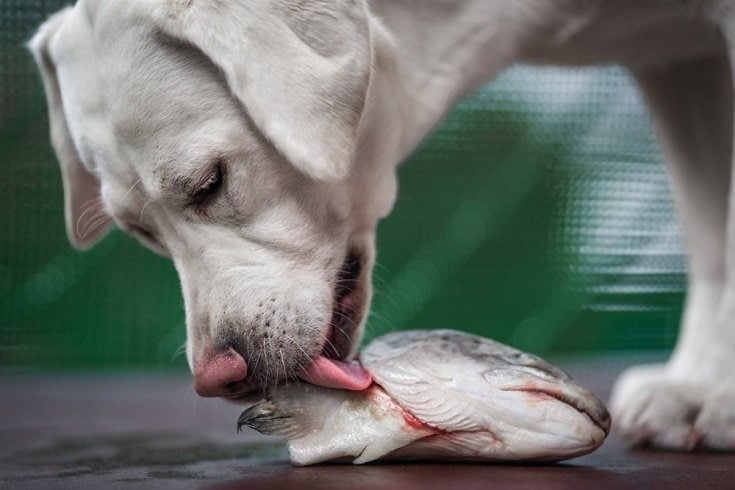
Fish is arguably one of the best calcium sources for your dog because it also brings so many more beneficial nutrients into the mix. It is also often easier to get your dog to eat fish than to feed them leafy greens.
Certain kinds of fish that you can feed your dog include salmon, sardines, trout, and tuna. From the skin to the meat inside, each part of a fish tends to be highly beneficial for your pup. The only things you need to avoid are the bones. Take out all the bones and the spine in larger fish like salmon and trout before feeding them to your dog.
Fish are good for dogs because they are high in omega-3 fatty acids and vitamin C. They are jam-packed with plenty of other nutrients, but the fatty acids are what fish are best known for in a dog’s diet.
5. Chicken
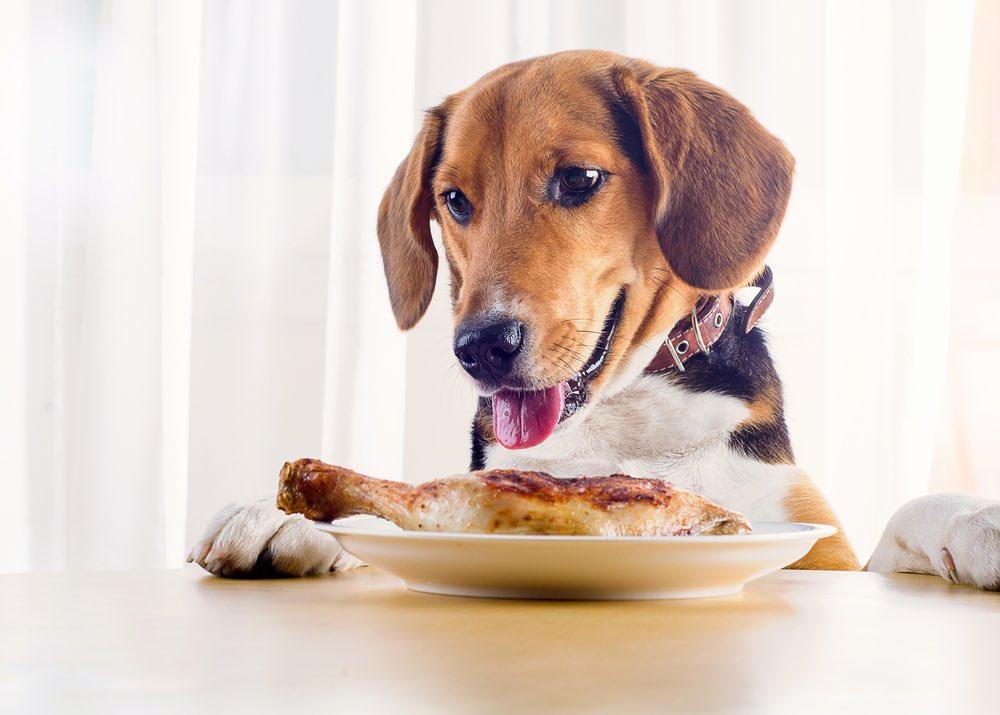
Chicken is generally a great source of both calcium and protein for your pup. Too much meat is never a good thing, but you can easily get them to eat it and happily so. Your dog will appreciate raw chicken as much as cooked chicken. That choice often comes down to what you feel most comfortable serving them.
6. Eggs
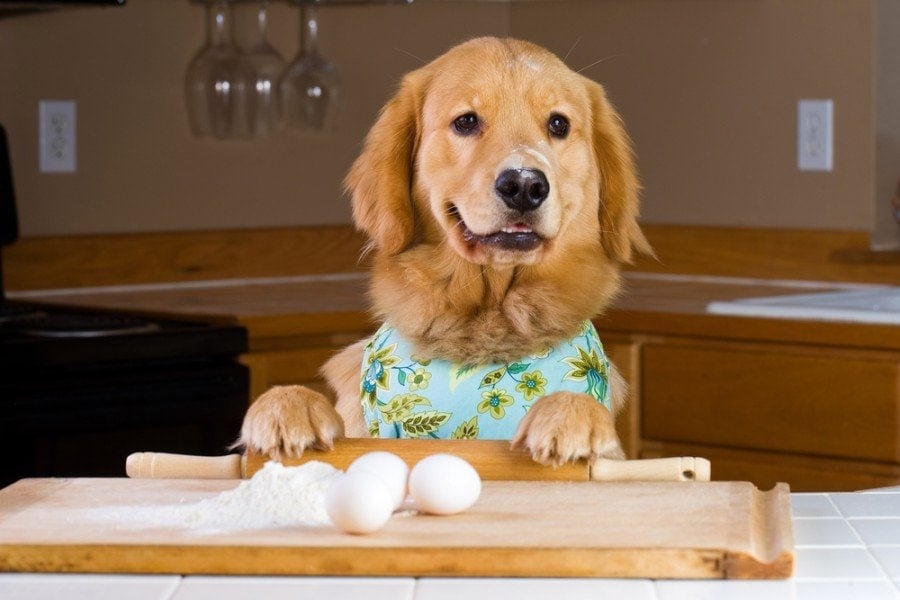
What comes first, the chicken or the egg? When it comes to your dog, it doesn’t matter. They love them both. Eggs are a quick and easy solution to the calcium problem. It is best not to give your dogs raw eggs, though, since they are susceptible to salmonella poisoning.
Do not overdo it on the eggs, since they pack in more cholesterol than their adult counterpart, the chicken.
Dairy Products

While dogs can benefit from dairy products, this addition to our list comes with a significant caveat. Many dogs are lactose-intolerant, and drinking milk, eating cheese, or mixing yogurt with their food can cause stomach issues. If you want to use dairy products to provide your dog with needed calcium levels, then test it out in small batches or check with your vet first.
Related Read:
- Best Salmon Dog Foods – Reviews & Buyer’s Guide
- My Dog Ate a Chicken Bone – Here’s What To Do (Vet Answer)
Featured Image Credit: schmitma1, Pixabay




